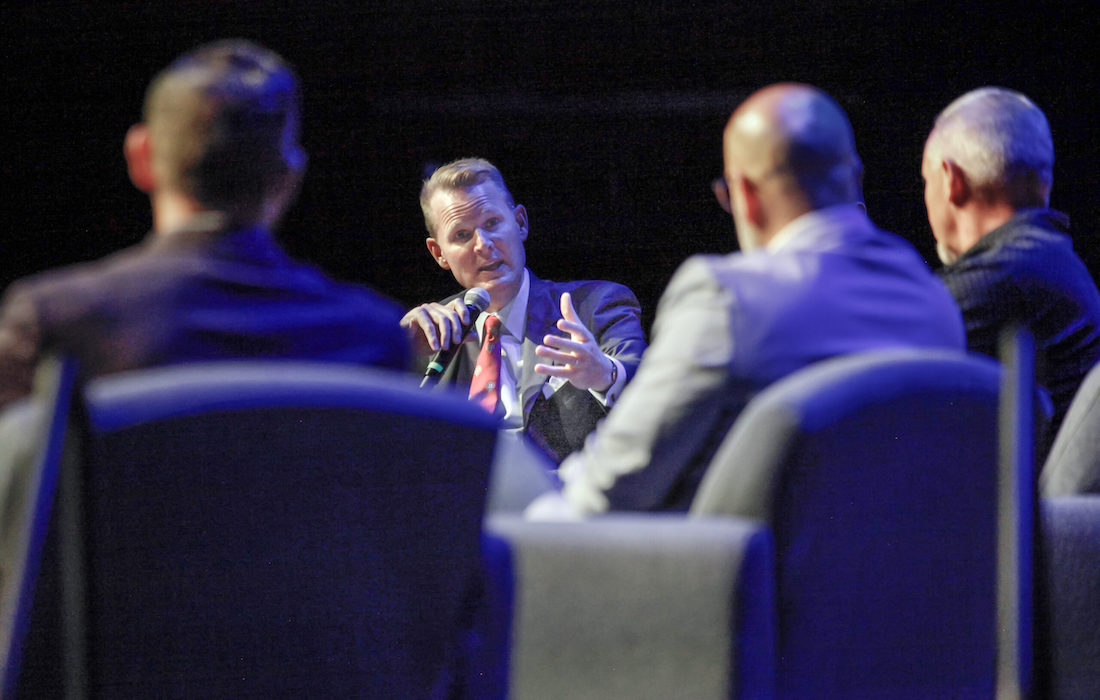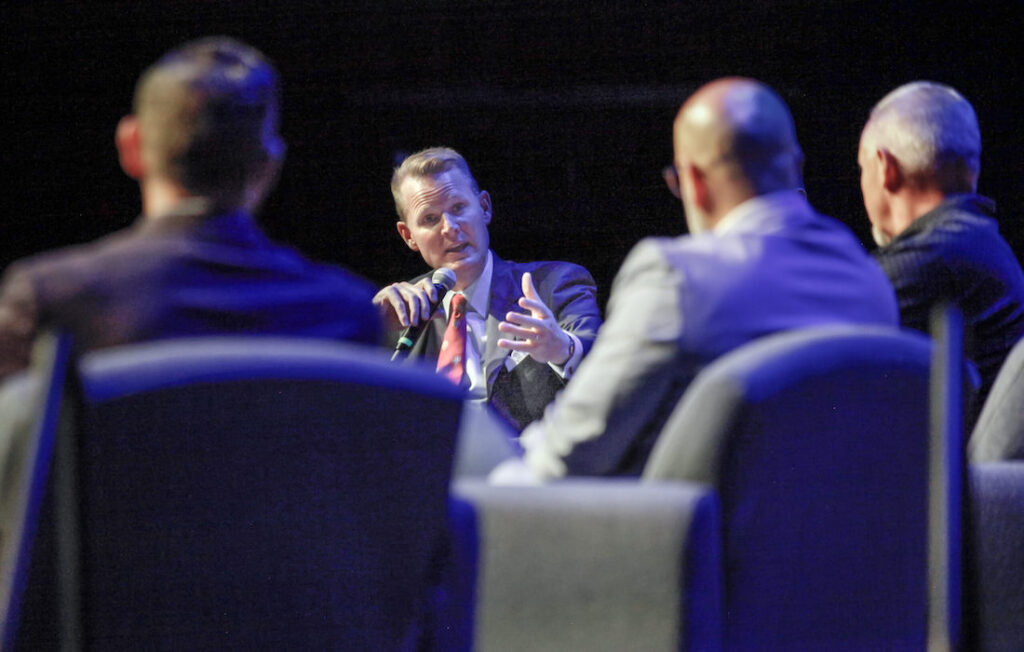NEW ORLEANS (BP) — Midwestern Seminary hosted the annual For the Church Micro-Conference in partnership with Send Network during this year’s SBC annual meeting in New Orleans. The micro-conference featured musical worship led by The Worship Initiative and a conversation focused on preparing pastors and planting churches.
Speakers Jason Allen, Kevin Ezell, Matt Carter, Vance Pitman, and Tony Merida addressed over 1,300 attendees on topics ranging from denominational partnership to equipping the next generation of ministry leaders in the local church.

Midwestern Seminary President Jason Allen began the conversation by announcing a new strategic partnership between Midwestern Seminary and the North American Mission Board (NAMB). The partnership seeks to bolster the relationship between NAMB and Midwestern Seminary by connecting NAMB leaders with seminary students and giving aspiring ministry leaders access to NAMB resources.
Kevin Ezell announced Tony Merida as the new vice president of planter development with Send Network, who will have an invested role in the new partnership.
Ezell shared how there can be a lack of theological accountability amongst church planters, saying, “I want to raise the bar of all our theology and preaching among all our planters, so that wherever you find a Send Network church, you can trust that the Word of God will be preached there. That’s one of the reasons we brought Tony on is to enhance theological training in NAMB.”
After expressing his gratitude in joining the NAMB team, Merida explained his philosophy for training church planters.
He said, “It’s easy for church planting organizations to be pragmatically-driven, but we need to send out planters that are theologically-driven and equipped to sow the seed of the gospel.”
“I want to see theologically robust church planters who recognize their utter dependence on God for fruit,” Merida continued. “The church planter is not a rockstar, but a beggar asking God to provide the rain to create growth.”
Merida then overviewed three phases of training he plans to implement with Send Network: 1) theological training at institutions such as Midwestern Seminary, 2) cultural analysis to learn how to minister in a specific context, and 3) practical ministry training on topics such as church administration and preparing sermons.
Merida shared how a conversation with Vance Pitman, president of Send Network, helped confirm his call to join NAMB. The conversation focused on Pitman’s vision for the network.
Pitman shared this vision with conference attendees as well, stating Send Network’s goals for planting churches. “If there are millions of lost people in North America, what would it take to reach one percent of them? When we started running some numbers, we saw that if we could start 11,000 churches that can multiply one time each, and each of those churches reach just 125 people for Christ, then millions would be reached for the gospel.”
Matt Carter, vice president of mobilization, also expressed his passion for this church planting vision. Carter comes to NAMB after recently stepping out of local church ministry due to serious and life-threatening health concerns.
Carter said, “I don’t know how long I have to live, but the last years of my life, to see thousands of churches planted, that’s something I can give my life to.”
Allen closed the panel by asking the NAMB representatives about where they are most encouraged in ministry right now.
Pitman spoke to the new partnership with Midwestern Seminary, sharing how he believes the structure of the partnership has promise for ministry fruit in Kansas City and beyond.
He said, “This new partnership with Midwestern Seminary is more than just funding a professor. There’s a strategic plan in place that is measurable and has real fruit of church planters being produced in local churches, and we couldn’t be more excited.”
Carter said, “I’m so encouraged as I look at our church plants and church planters. The Spirit of God has been moving at NAMB amongst our church plants. This is not just about planting churches, God is up to something, and we’re excited to be a part of it.”
Ezell said, “The goal is not to start churches and move Christians from one church to another. The goal is to see God’s kingdom expand. We’ve seen this generation of planters intentionally engage cities with the gospel and have been blown away by the transformation that has taken place.”
As a word to aspiring planters, Pitman mentioned two key qualities they look for in future leaders: Christ-like humility and a missionary zeal.
“One of the things troubling to me today is the absence of Christlike humility. You will not make it in church planting if you don’t approach it completely dependent on God,” he said.
“There also needs to be a missionary wiring too. You need to be focused on engaging the city with the gospel even more than pastoring at times. We don’t start with church services; we start with a city and a church is planted.”
Published June 29, 2023
